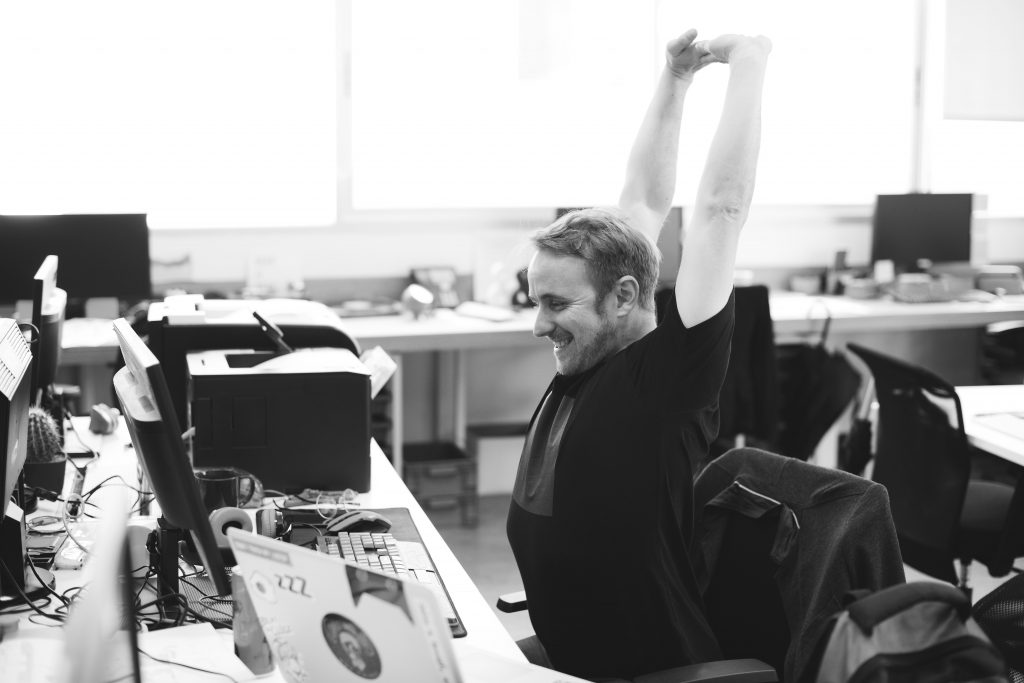The workplaces of the future are characterised by a digitised and boundless working environment in which we can largely control how, where and when we want to work. We are given new opportunities, but we also face new challenges. Are the workplaces keeping up with the rapid pace of development? And how do we get a sustainable working life – our whole life?

This was some of the questions that was discussed during the Work-Life Mingle that took place during the Sustainability Week at Lund University. The event was a collaboration between the Alumni Network, the City of Lund and Design Sciences at the Faculty of Engineering. Design Sciences conducts a vast amount of important research connected to the digitised worklife, leadership and work-life health.
During the event we took the opportunity to talk to some of the participants, an inspiring mix of students, alumni and university employees.
 Name: Philip
Name: Philip
Work: Head of Education, internal affairs, at the Faculty of Engineering (LTH), Teknologkåren
Studies: Engineering Physics, LTH
What are the most import factors for a sustainable work-life?
It’s important to have a workplace culture that encourages you to pay attention to your own balance between work and free-time. What works for me and what doesn’t? It is also important to be attentive to your colleagues in case someone is working too much or is not feeling well. It’s not uncommon that students working full-time in a student union or student nation suffer from fatigue syndrome. You have to be aware of your own routines and not work from early morning until the middle of the night.
What is your takeaway from the event?
It is interesting to get insights on challenges from “real life” workplaces. The challenges you meet as an employee within a student organisation also exist in other workplaces. Today, we have also discussed the similarities between the free activity-based workplace and student life. Both as a student and at an activity-based workplace, you have to be able to plan your time and your work. Something that can be quite challenging depending on who you are as an individual.
 Name: Jenny
Name: Jenny
Work: Project manager and communicator for Sustainability Forum at Lund University
Studies: Film studies and Media and Communication studies, 2006
What are the most import factors for a sustainable work-life?
To be aware of the challenges that come with digital stress and organisational changes. To be able to adjust to social change and always be eager to learn new things.
What is your takeaway from the event?
The importance of discussing “digital temptations” in the workplace, for example, when you are available by email, phone, etc. for your employer. Another takeaway from today is that we handle challenges in the workplace differently depending who we are as individuals.
Name: Dan
Work: Retiree, has previously worked as an engineer at Sydkraft and Logica
Studies: Electrical engineering, class of 1978
What are the most import factors for a sustainable work-life?
To have time to relax and have the opportunity to be unreachable from time to time. You have to have the ability to plan your work: before the weekend, write a to-do list for the coming week and before your vacation, write a to-do list for when you return. This way you don’t have to think about work during your free time. That’s a routine that worked very well for me.
What is your takeaway from the event?
It has been very interesting to listen to so many different perspectives on this topic.
